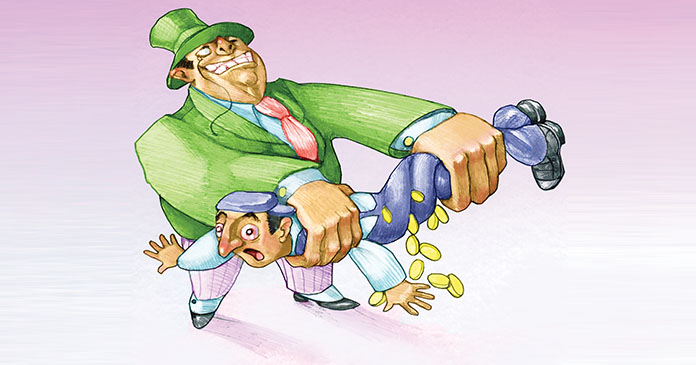Inflation has reached its highest level in nearly 40 years, and everyone is looking for answers. Before fiscal and monetary authorities can muster a policy response, we need to understand what is causing inflation. Unfortunately, the leading explanation on offer from progressives won’t help. Senator Elizabeth Warren has blamed rising gas prices on price-gouging and the high cost of holiday turkey on “plain-old corporate greed.” Presumably, inflation has been low for 40 years because greed has been low. Even the independent Federal Trade Commission, led by progressive Lina Khan, is launching an investigation into whether prices are rising because of anticompetitive behavior.
Basic economics should temper their zeal. Why should politicians or bureaucrats have a clue about why prices are rising? Even people who directly participate in the markets often don’t understand the forces driving their own behavior.
Consider a local gas-station operator. Since his customers vary from day to day, he keeps gasoline inventory on hand. When lots of customers show up, the inventory dwindles. When fewer customers show up, the inventory stays high. If the operator sees a sustained increase in customers, his inventory is drawn down by more than he anticipated. He may even run out of gas.
But that’s not the end of the story. As the past year has made painfully clear, the gas station is just the final seller in a long supply chain. As the station’s inventories shrink, he may place a bigger order with the refinery. The refinery, too, will see declining inventories, and will thus want to purchase more crude oil. Since the supply of oil is relatively fixed from month to month, greater competition for a fixed supply of oil drives up the price for refineries. That causes gas stations to follow suit, passing the price hike on to drivers.
So what’s the cause of the price rise? Clearly, consumer demand started off this chain of reactions; consumers set in motion the process by which prices increased. Yet if we were to ask refineries why prices have gone up, they’d blame the cost of crude oil. And if we were to ask the gas stations, they’d blame their own rising costs from purchasing gasoline from the refineries.
In short, people don’t know why prices are rising. If we ask people working in the supply chain why prices have gone up, they are likely to blame higher costs or insufficient supply. But the terms “excess demand” and “supply shortage” refer to the same phenomenon: the price of a good rises when there is not enough of it to go around, but excess demand can be caused by an increase in demand or a decrease in supply.
Think back to the early days of the pandemic, when there were shortages of hand sanitizer and toilet paper. Those shortages were caused not by any issue in the supply chain but by a sudden increase in demand—and an unwillingness to raise prices.
Usually, the cause of shortages or price rises may not be so immediately obvious. Media reports of higher prices tend to ignore this complexity. Sometimes, reporters try to determine why the price of a given good is rising by talking to people in the supply chain. These people might give misleading responses—not on purpose, but because their job isn’t to explain why prices are rising. They can provide information only about their circumstances.
Luckily, economics tells us where to look. If prices and quantities are both increasing, it’s demand that’s driving the price change. If prices are rising while quantities are declining, something on the supply side is changing. Politicians can pin the rising prices of gas and turkey on supply-chain issues, corporate greed, or anti-competitive behavior all they want. But since prices are rising across the board alongside increases in production, an increase in overall consumer demand seems to be a bigger driver. That’s not something that demagoguery will do anything to solve.
Author Brian Albrecht is an assistant professor of economics at Kennesaw State University and a Young Voices contributor. Joshua Hendrickson is an associate professor of economics at the University of Mississippi. They jointly write a weekly economics newsletter on basic economics (pricetheory.substack.com).
















